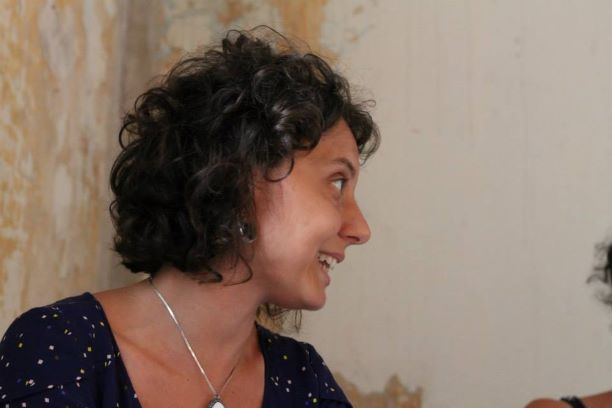Studying at the University of Verona
Here you can find information on the organisational aspects of the Programme, lecture timetables, learning activities and useful contact details for your time at the University, from enrolment to graduation.
Academic calendar
The academic calendar shows the deadlines and scheduled events that are relevant to students, teaching and technical-administrative staff of the University. Public holidays and University closures are also indicated. The academic year normally begins on 1 October each year and ends on 30 September of the following year.
Course calendar
The Academic Calendar sets out the degree programme lecture and exam timetables, as well as the relevant university closure dates..
| Period | From | To |
|---|---|---|
| LMSRPS - 2° ANNO 1° SEM. | Oct 3, 2019 | Feb 8, 2020 |
| LMSRPS - 1° ANNO 1° SEM. | Nov 14, 2019 | Mar 14, 2020 |
| LMSRPS - 2° ANNO 2° SEM. | Apr 16, 2020 | Jun 27, 2020 |
| LMSRPS - 1° ANNO 2° SEM. | Apr 16, 2020 | Jun 27, 2020 |
| Session | From | To |
|---|---|---|
| Sessione invernale Lm Srps | Mar 16, 2020 | Apr 9, 2020 |
| Sessione estiva Lm Srps | Jul 1, 2020 | Jul 31, 2020 |
| Sessione autunnale Lm Srps | Sep 1, 2020 | Sep 30, 2020 |
| Session | From | To |
|---|---|---|
| Prima sessione Lm Srps | Sep 15, 2020 | Dec 15, 2020 |
| Seconda sessione Lm Srps | Mar 1, 2021 | Apr 30, 2021 |
| Period | From | To |
|---|---|---|
| FESTIVITA' OGNISSANTI | Nov 1, 2019 | Nov 1, 2019 |
| FESTIVITA' IMMACOLATA CONCEZIONE | Dec 8, 2019 | Dec 8, 2019 |
| Vacanze di Natale | Dec 23, 2019 | Jan 6, 2020 |
| VACANZE DI PASQUA | Apr 10, 2020 | Apr 15, 2020 |
| FESTA DELLA LIBERAZIONE | Apr 25, 2020 | Apr 25, 2020 |
| FESTIVITA' DEL LAVORO | May 1, 2020 | May 1, 2020 |
| FESTIVITA' DEL SANTO PATRONO SAN ZENO | May 21, 2020 | May 21, 2020 |
| Festa della Repubblica | Jun 2, 2020 | Jun 2, 2020 |
| vacanze estive | Aug 10, 2020 | Aug 23, 2020 |
| Description | Period | From | To |
|---|---|---|---|
| Stage 2° anno Lm Srps | Stage 2° anno Lm Srps | Jun 15, 2020 | Sep 15, 2020 |
| Stage 1° anno Lm Srps | Stage 1° anno Lm Srps | Jul 1, 2020 | Sep 30, 2020 |
Exam calendar
Exam dates and rounds are managed by the relevant Medicine Teaching and Student Services Unit.
To view all the exam sessions available, please use the Exam dashboard on ESSE3.
If you forgot your login details or have problems logging in, please contact the relevant IT HelpDesk, or check the login details recovery web page.
Should you have any doubts or questions, please check the Enrollment FAQs
Academic staff
 davide.adamoli@univr.it
davide.adamoli@univr.it
 marialivia.alga@univr.it
marialivia.alga@univr.it
 cinzia.biondani@ospedaleuniverona.it
cinzia.biondani@ospedaleuniverona.it
Cunico Laura
 laura.cunico@univr.it
laura.cunico@univr.it
 tullio.ferrari@univr.it
tullio.ferrari@univr.it
 christian.geroin@univr.it
christian.geroin@univr.it
Makil Elhassan
 alessandro.manganotti@ospedaleuniverona.it
alessandro.manganotti@ospedaleuniverona.it
 loredana.pancheri@univr.it
loredana.pancheri@univr.it
 sara.rinaldi@univr.it
sara.rinaldi@univr.it
Study Plan
The Study Plan includes all modules, teaching and learning activities that each student will need to undertake during their time at the University.
Please select your Study Plan based on your enrollment year.
1° Year
| Modules | Credits | TAF | SSD |
|---|
2° Year activated in the A.Y. 2020/2021
| Modules | Credits | TAF | SSD |
|---|
| Modules | Credits | TAF | SSD |
|---|
| Modules | Credits | TAF | SSD |
|---|
Legend | Type of training activity (TTA)
TAF (Type of Educational Activity) All courses and activities are classified into different types of educational activities, indicated by a letter.
Psychology and sociology of organizational processes - PSICOLOGIA DEL LAVORO E DELLE ORGANIZZAZIONI (2019/2020)
Teaching code
4S008432
Teacher
Credits
2
Language
Italian
Scientific Disciplinary Sector (SSD)
M-PSI/06 - WORK AND ORGANIZATIONAL PSYCHOLOGY
Period
LMSRPS - 1° ANNO 1° SEM. dal Nov 14, 2019 al Mar 14, 2020.
Location
VERONA
To show the organization of the course that includes this module, follow this link: Course organization
Learning outcomes
The course of work psychology will deal with the concept of decision-making process (problem-finding, problem-setting, problem-solving e decision-making), from the point of view of cognitive, emotional and behavioral aspects. The course will follow the path that starting from the individual will lead to organization. In particolar, starting from such concepts as organizational cohabitation and diversity management, the course will deal with decisional flows in the workplace, touching such topics as satisfaction, motivation, performance and commitment.
Program
1.1. the individual at work
- Cognitive characteristics: intelligence and convictions:
o Simon, Kahneman e Tversky: rationality vs irrationality;
o Cognitive biases;
o Opinions and attitudes;
o Gardner (multiple intelligences) and Goleman (emotional intelligence);
- Emotional characteristics: needs and motivations:
o Intrinsic and extrinsic motivations;
o Maslow hierarchy of needs;
o Rogers' self-actualization;
o The two Factor Theory by Herzberg;
- Behavioral characteristics: abilities and competencies:
o Abilities, capacities, skills and competences;
o The assessment of position (job description; job analysis; task analysis);
o The assessment of performance;
o The assessment of potential.
1.2. Group at work: the dynamics
- Cooperation vs Competition (the T-Group by Lewin and the Groups of Encounters by Rogers);
- Inclusion vs Exclusion (the T-Group by Lewin and the Groups of Encounters by Rogers);
- Cohesion vs Conflict;
- Leadership vs Membership (Lewin, Likert, Fiedler and Bass)
- Dependency vs Autonomy (Rogers)
- Task orientation – Bass.
1.3. Organization
- Organizational Development (Bennis and Schein):
- Selection (Assessment Center and Development Center);
- Cultures, sub-cultures and counter-cultures;
- Diversity Management;
- Climate and safety climate: stress, mobbing, bur
Examination Methods
The exam will be written and will be composed of a variable number of open and closed questions. These will be drawn by the 5 chapters of the book by Sartori and Rappagliosi to be studied for the exam.
Career prospects
Module/Programme news
News for students
There you will find information, resources and services useful during your time at the University (Student’s exam record, your study plan on ESSE3, Distance Learning courses, university email account, office forms, administrative procedures, etc.). You can log into MyUnivr with your GIA login details: only in this way will you be able to receive notification of all the notices from your teachers and your secretariat via email and soon also via the Univr app.
Gestione carriere
Internships
Stage
in definizione
Orario lezioni
Documents
| Title | Info File |
|---|---|
|
|
pdf, it, 260 KB, 26/01/24 |
|
|
pdf, it, 187 KB, 11/04/24 |
|
|
pdf, it, 203 KB, 12/04/24 |
Student login and resources
Attività seminariali/a scelta dello studente
La Commissione Didattica organizza l'offerta di attività didattiche opzionali, realizzabili con lezioni, seminari, corsi interattivi a piccoli gruppi, tirocini fra i quali lo studente esercita la propria personale opzione, fino al conseguimento di un numero complessivo di 6 CFU.
Le attività formative a scelta dello studente si concludono con un esame, che, in quanto tale, concorre al completamento delle certificazioni di profitto requisito per accedere all'esame finale.
Il materiale didattico relativo alle suddette attività didattiche saranno messe a disposizione nello spazio moodle riservato allo stage.
Appelli d'esame
Potranno chiedere di fare l’esame di profitto o di laurea a distanza solo le studentesse e gli studenti in isolamento in quanto positivi al SARS-CoV-2. La richiesta dovrà essere fatta inviando al docente il modulo allegato
Documents
| Title | Info File |
|---|---|
|
|
pdf, it, 260 KB, 26/01/24 |
|
|
pdf, it, 160 KB, 18/03/24 |
|
|
pdf, it, 135 KB, 18/03/24 |
|
|
pdf, it, 185 KB, 18/01/23 |
|
|
octet-stream, it, 1299 KB, 31/01/23 |



 045 8124930
045 8124930


















